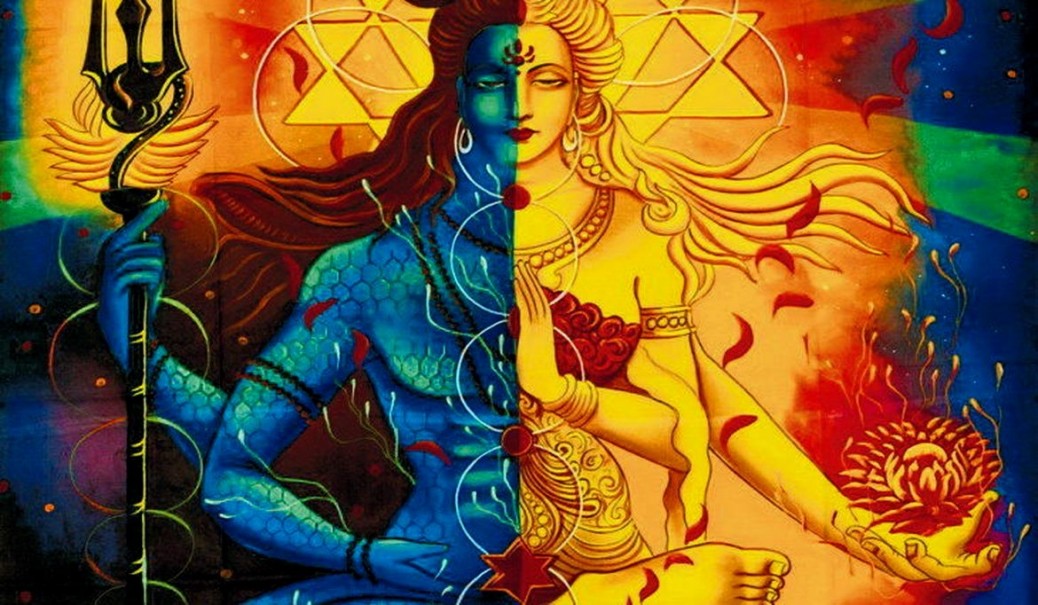VBT – Week’s Meditation 34
Selfsame
Your mind is it. When you see the selfsame essence of it, you can call it suchness.
If you: see the selfsame essence of it… What does he mean by selfsame essence? Your ordinary mind changes every moment. It is never the same for even two seconds. One moment you are angry, another moment you are sad, another moment you are happy. You go on changing, you change so easily. You are a flux. But if you watch this flux, then a totally different kind of mind arises in you – witnessing.
This witnessing is selfsame. Sadness comes, you witness it; happiness comes, you witness it; despair comes, you witness it; joy comes, you witness it. Now, the contents are continuously changing, but the witnessing is the selfsame. It is always the same, it never changes. The mirror remains the same. People go on and go on passing in front of the mirror. It reflects one face for a moment, then another face, but the mirror remains the same.
Bodhidharma says: When you see the selfsame essence of it, you can call it suchness. You can call it tathata, suchness. Suchness is a Buddhist way of expressing that there is something in you which always remains in its intrinsic nature, never changes. It always remains in its selfsame essence, eternally so. That is your real nature. That which changes is not you; that is mind. That which does not change in you is the buddha-mind. You can call it no-mind, you can call it samadhi, satori. It depends upon you. You can give it whatever name you want. You can call it Christ consciousness.
When you see the changeless nature of it, you can call it dharmakaya.
Seeing that it never changes, you can call it the very embodiment of the ultimate law, the very body of dharma.
It does not belong to anything…
It is not identified with anything: It does not belong to anything… The witness in you is always a transcendence, always a surpassing phenomenon. It transcends everything. Whatever is seen, whatever comes before it, it is never one with it.
It does not belong to anything; therefore, it is called emancipation.
It is called liberation. Liberation from the mind brings the buddha-mind into your vision. Liberation from identification, liberation from the body, from the mind, from ideologies, from prejudices, from all that makes you – liberation from you brings you to reality.
Then you have to understand one thing. Ordinarily, whenever you think of liberation, you think – my liberation. There is nothing like that. There is no liberation which can be called “my liberation.” All liberation is from the idea of the ego. You will not be liberated, you will be liberated from yourself. It is not your liberation, it is liberation from you. It is emancipation from all that you have become identified with.
The Upanishads say: neti, neti: neither this nor that. When you go on negating and saying, “I am not this, I am not that,” a moment comes: nothing is left, nothing to reflect in the mirror, only the mirror. Then you know who you are. But now you cannot say, “This is what I am,” because that will bring the thought back. You cannot say anything about it, you have to be utterly silent about it.
We are deep asleep. The name of that sleep is the ego. And in our sleep anything can happen, all kinds of accidents – and they are happening. You are talking in your sleep and you are getting into trouble because you talk in your sleep. You go on saying things which you are not supposed to say. You decide not to say them again because they bring trouble, but again you go on repeating the same pattern. You go on doing things which you have decided not to do. But you are asleep and others around you are also asleep. People are talking in their sleep, answering each other in their sleep. Great dialogues are going on, great fights, quarrels. And the whole thing is that if you wake up, all this nonsense will disappear.
The buddha-mind is one who has become awakened.
Tags: Selfsame




